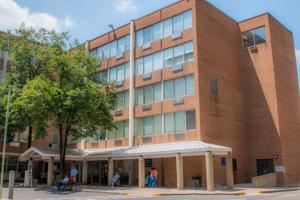At Boston Medical Center, our podiatry team is here to help you get the care you need to stay active, comfortable, and healthy on your feet. Whether you’re managing a chronic condition or dealing with a new concern, we’ll work with you—and, if needed, other specialists, including in Vascular Surgery, Endocrinology, and Infectious Diseases—to support your overall health and mobility.
Leading Expertise
Over a Quarter-Century of Care
For more than 25 years, our clinicians have been providing leading-edge care to patients in the Greater Boston area.
Providing a Full Spectrum of Care
From routine foot care to complex care for patients with diabetes and peripheral vascular disease, our team is experienced in all areas of podiatry.
Excellent Care for Everyone
With more than 700 surgical cases and 20,000 clinic visits annually, our busy surgical practice provides exceptional care to each patient.
Location and Contact
Podiatry Department
Monday–Friday 8 a.m. to 4:30 p.m.

Podiatric Surgery Residency
The Podiatric Surgery Residency program at Boston Medical Center is a comprehensive three-year program accredited by the Council on Podiatric Medical Education. Two new residents are matched each academic year. During their training, residents are exposed to a wide range of clinical presentations and surgical techniques, with significant emphasis on limb salvage.

Podiatry Research Overview
The Division of Podiatric Surgery is committed to improving the care of patients through innovative research. This includes participating in a variety of clinical trials focused on treatments that have the potential to advance podiatric care, including new products being developed to aid in luminescence-guided wound debridement and in wound healing for patients with diabetes.

